Llanelli boy 'didn't get enough support' from school before death
- Published
Bradley John "should be coming up to his 18th birthday", his father says
The father of a 14-year-old boy who was found hanged said his son took his own life due to a lack of support from the school he attended.
Bradley John was found in a toilet block at St John Lloyd Catholic School in Llanelli on 12 September 2018.
A safeguarding report said there was nothing to suggest that professionals could have "predicted or prevented" his death.
Byron John said the report did nothing to change the family's situation.
An inquest last month ruled that Bradley died as a result of misadventure.
Mr John said: "Other than Bradley walking around the corner and being back here, nothing else is ever going to restore where we should be.
"He should be coming up to his 18th birthday. He had a career in place, he was extremely talented, he had a future, a future that he wanted and yearned for and we were supporting him to achieve.
"Due to a lack of support, he took his life. He didn't leave a note, he took his life in a place which affected him, a place which was an inadequate go-to for safety when he was distressed or frustrated."
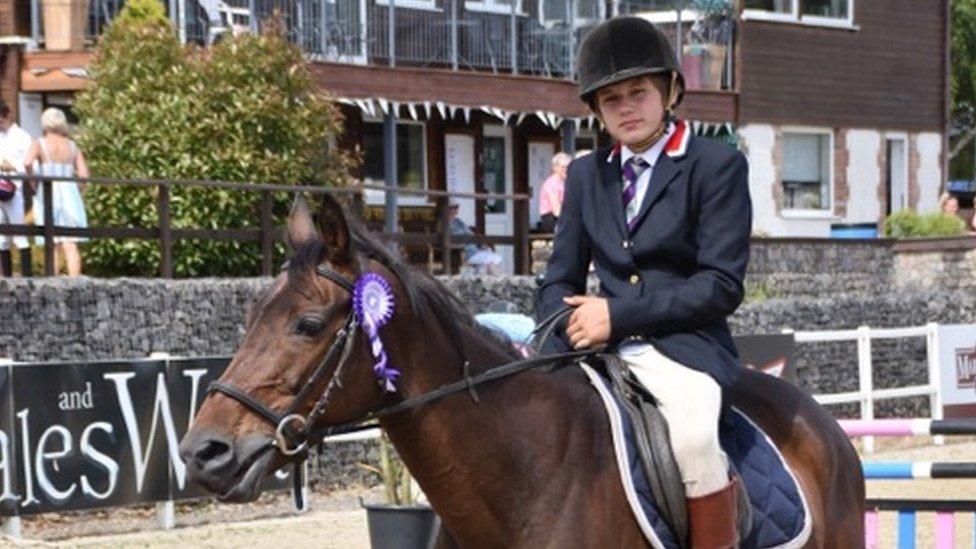
Bradley John died after being found at St John Lloyd Catholic Comprehensive in September 2018
A child practice review has now been published by the Mid and West Wales Safeguarding Children Board.
The report said Bradley was described by his family as being "the happiest he had ever been" in the weeks prior to his death.
He had enjoyed a good summer, had been on holiday and was doing well in equine competitions of a "prestigious standing".
His school attendance was good and he had been excited about the school prom, the report added.
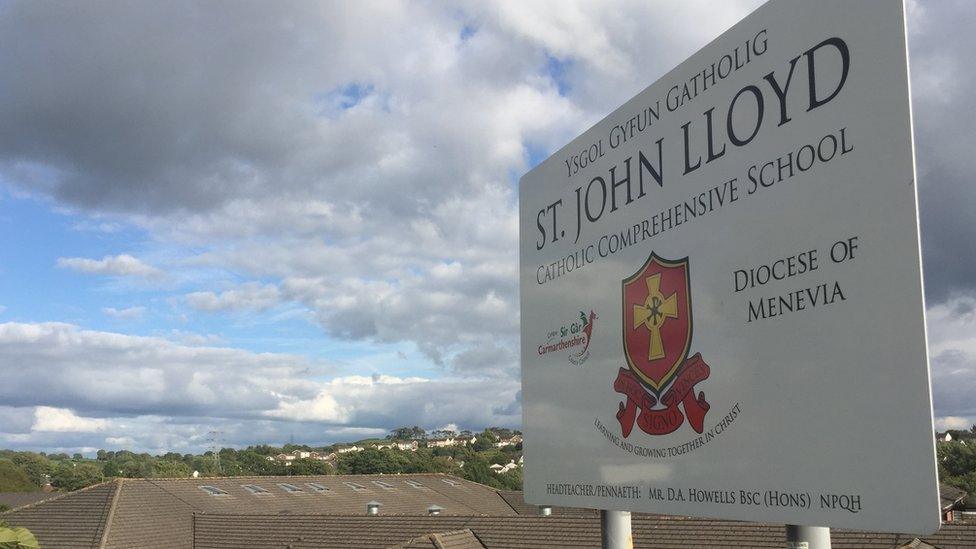
Bradley John was a pupil at St John Lloyd Catholic Comprehensive School
He was described as a much-loved son, brother and stepson who had a lot to celebrate and was an accomplished horse rider, competing nationally at a high standard.
But Bradley was bullied in school and on the school bus, which caused him distress and concern, the report said.
It also said he had attention deficit hyperactivity disorder and a history of adverse childhood experiences (ACEs) and early trauma.
On one occasion, Bradley was allegedly inappropriately touched by another pupil.
The report said his head of year was told, but it was not passed on to the safeguarding lead or head teacher.
It said the alleged incident was "not easily identifiable in records submitted" by the school.
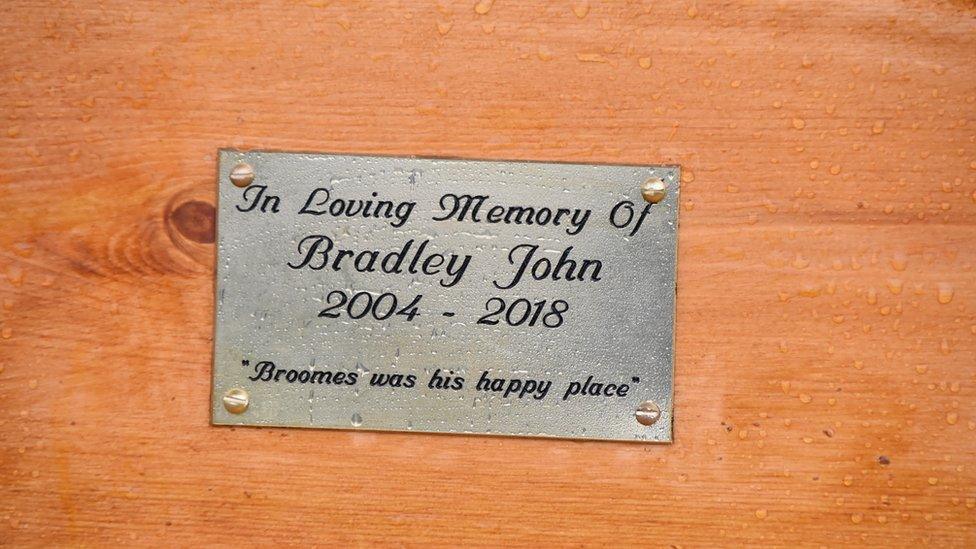
A memorial bench was unveiled at the David Broome Event Centre in Caldicot, where Bradley trained in showjumping
The school was questioned about it and, on reflection, the headteacher acknowledged that they would have advised the incident be reported and investigated under the school's safeguarding procedures as this was an alleged peer on peer abuse situation and an alleged sexual assault.
The report also described a letter written by a cognitive behaviour psychotherapist from October 2017 that said Bradley had been bullied and they were concerned at the "continued impact of this on his emotional and mental wellbeing".
They said there had been a clear change in his presentation.
The report acknowledged good practice, but also identified areas for learning.
Author Gladys Rhodes White said that everybody had done their best - especially the family - to listen to Bradley.
However, she said that generally there was more everyone could do to listen and respond to the needs of children "in a way that they know we have heard them".
"There are some clear lessons identified in the report," she said.
"I think everybody needs to look at those and put them into practice in their own organisations and make sure that those lessons become reality - so not put the report on a shelf and ignore the learning."
Mr John agreed that children's voices should be heard, but said the report was somewhat lacking.
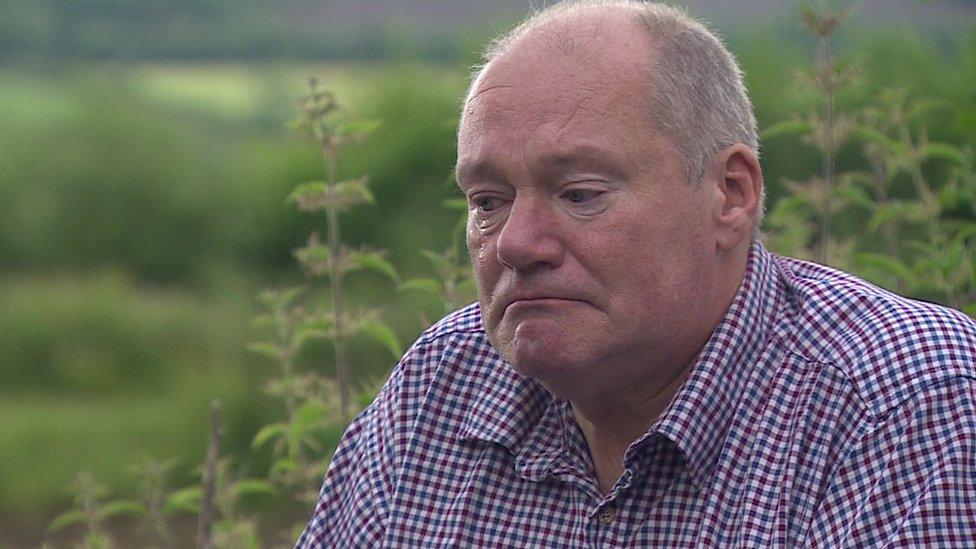
Bradley John's voice "wasn't heard", his father says
"Bradley's voice wasn't heard. The fact that he took his life where he did is very, very symbolic.
"I feel [the report] is in depth, it's looked at it from all angles, but did not have the authority to question some of those perspectives or angles. It had to rely on explanations given."
The report identified eight themes for learning, including a need to ensure that practice, training and policy on bullying is compliant and acknowledges the added vulnerabilities of children who have additional learning needs, emotional mental health and well-being issues, have experienced ACEs or have disabilities.
Related topics
- Published13 September 2018
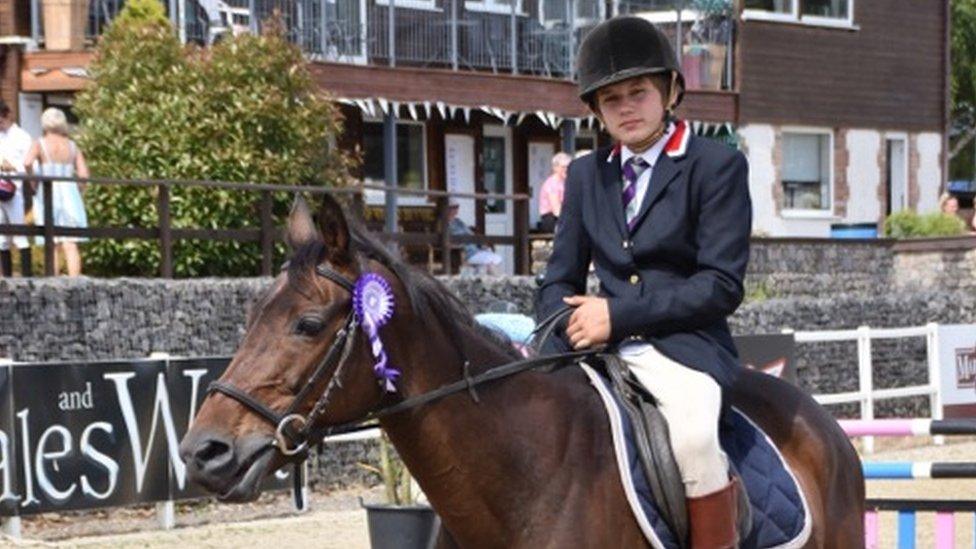
- Published24 May 2021

- Published21 September 2018

- Published29 June 2021

- Published23 September 2018
